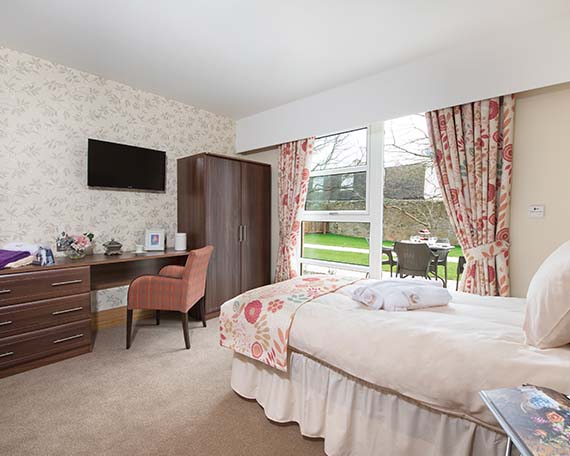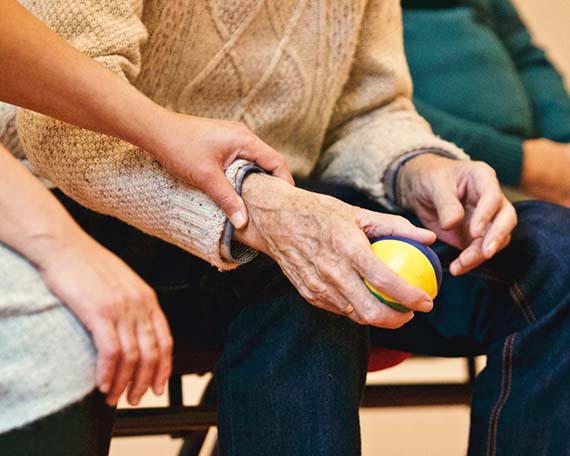When Should Someone with Dementia go into Care Home?

Caring for a loved one who is a person with dementia is one of the most selfless things a person can do but it can also be one of the most emotionally and physically exhausting. If you’ve been supporting someone at home, with vascular dementia, young-onset dementia, alzheimer's disease, or frontotemporal dementia, you may be wondering when the time is right to consider a residential care home. It’s not an easy question to answer, and it’s completely normal to feel a mix of guilt, doubt, and concern.
The truth is, there’s no single 'right time,' but there are signs that can help guide the decision. And sometimes, the most loving thing you can do is seek extra support after a dementia diagnosis because ensuring your loved one’s safety, dignity, and comfort often means recognising when their needs have outgrown what you can provide alone. This guide is here to help you understand the signs, options, and care pathways available. Whether you're still managing your person's care day-to-day at home or already starting to look at residential options, you're not alone, there are warm, supportive communities ready to help you support your loved one to live a fulfilling life.
Understanding Dementia Symptoms
Dementia symptoms can appear in many different ways, and understanding these common early signs can help you provide the best possible support for your loved one. Often, the first hints may be small things like forgetting familiar names or places, feeling confused about recent events, or finding everyday tasks more challenging than before. These early changes can be puzzling and sometimes worrying, but gentle activities such as light exercise, puzzles, or memory games may help keep the mind active and maintain a sense of normalcy and confidence, because they offer reassurance and structure in a time of change.
As dementia progresses, you might notice other changes such as sleep disturbances, mood swings, increased forgetfulness, or a need for help with personal hygiene and personal care, like dressing and grooming. These shifts can be difficult for everyone involved, and it’s completely natural to feel a mix of emotions. What’s important is recognising these changes early and seeking advice from healthcare professionals who can provide a thorough assessment and guide you toward the right type of support and care.
Living with dementia isn’t just about managing symptoms—it’s about nurturing comfort, dignity, and connection. Family members and other carers play a wonderful role in offering daily encouragement and love, helping to create a safe and familiar environment. But caring for someone with dementia can be tiring, emotionally and physically, because it often becomes a full-time commitment that may require the assistance of professional carers. It’s equally vital to look after your own wellbeing. Be kind to yourself, reach out for support when you need it, and remember that you’re not alone — there are many organisations, community groups, and healthcare providers ready to help you and your loved one through this journey. Taking things one step at a time, focusing on moments of joy, and seeking appropriate specialist support can really help improve quality of life for everyone involved. Dementia affects the whole family, but you can be proactive in how you face it.
Dementia Friendly Care Options
Dementia care options can vary widely to suit individual needs, and understanding these choices can help you find the best support for your loved one. Many people with dementia continue to live at home, benefiting from live-in care or visiting carers who help with daily tasks while respecting their independence and routines, but some may eventually require a nursing home. Dementia care homes offer specialist dementia care, providing a safe and supportive setting where trained staff are available around the clock. These environments often include social activities tailored for people with dementia, helping to foster friendships and reduce feelings of isolation. Some care homes also offer nursing care for more complex health needs, ensuring medical support is close at hand.
Choosing the right care option means more than just meeting basic needs; it’s about preserving dignity and providing the right level of support at the right time, often determined through a needs assessment . It’s a balance between maintaining independence and accessing the level of support required for safety and wellbeing. Personal budgets and financial assessments can help determine the funding available for the care needed, and there are many support services available to guide you through these processes.
Remember, considering residential care doesn’t mean you’re giving up, it means recognising that needs change, and care should too. Whether that means staying at home with help or moving to a care home that feels like a community, the goal is always to enhance quality of life with compassion and respect.


Finding the Right Dementia Care Home
When it comes to choosing a care home for someone with dementia, there are several important factors to keep in mind to ensure it feels like a supportive and welcoming place. First, consider the location—choosing a care home near family and friends can make visits easier and help your loved one feel connected. Look for dementia-friendly features such as safe gardens, quiet areas, and spaces designed to reduce confusion and anxiety.
It’s also helpful to check the facilities and available activities that promote social interaction and mental stimulation, like music therapy, arts and crafts, or gentle exercise classes. Reading inspection reports and reviews from other families can provide useful insights into the quality of care and the home's reputation. While phone or video calls can be a good starting point to ask questions, visiting the care home in person gives a clear sense of the environment and allows you to meet the staff who will be involved in daily care.
Pay attention to how the care home approaches dementia care specifically. Do they offer tailored plans, encourage family involvement, and respect the person’s preferences and routines? Family and friends play a vital role in a care home environment, and their continued involvement can greatly enhance the wellbeing of the resident. It’s okay to ask hard questions; your loved one deserves a place where they feel safe, understood, and valued. Choosing a care home is a significant step, but with careful consideration and support, it can become a positive and nurturing new chapter in your loved one's life.
Support to Arrange Dementia Care
Funding and support are important considerations when arranging care for someone with dementia, and understanding the options can help ease financial concerns. Many individuals with dementia may be eligible for funding through local authorities, but this usually involves a financial assessment or means test to determine eligibility. It’s important to gather information early, as this process can take time and help ensure the right support is in place.
In addition to local authority support, there are benefits such as the Adult Disability Payment and Pension Age Disability Payment, which can contribute towards care costs. Charities and organisations like Dementia UK offer guidance and may help with accessing these supports. They often provide practical advice on managing finances alongside emotional support for families dealing with the complexities of dementia care.
Another key tool is a Lasting Power of Attorney (LPA), which allows a trusted person to make decisions on behalf of someone with dementia when they lose mental capacity. Setting this up early is crucial — because it ensures your loved one’s wishes are respected when they need it most. Planning ahead with these financial and legal resources can make a significant difference in managing dementia care smoothly and compassionately.
Arranging the Right Care for Your Loved One
Arranging dementia care can feel overwhelming, but taking it step by step and focusing on your loved one’s needs can help provide the best outcomes. It’s essential to prioritise their independence and daily routines as much as possible while introducing the right support. Working with a dedicated team of healthcare professionals—including social workers, nurses, and dementia care advisors—can guide you through the process smoothly.
Creating a personalised care plan is an important part of this journey. This plan should consider your loved one’s medical, social, and emotional needs, and it should be flexible enough to change as those needs evolve. Regular reviews with healthcare providers ensure the care remains effective and responsive.
Involving family members and carers in the planning process is vital, as their insight helps tailor support to what’s meaningful for the individual. And it’s okay to need support, because no one should have to navigate this journey alone. There is a network of professional and community support to help you and your family face the challenges of dementia care with confidence and compassion. This approach helps create a caring environment where your loved one can feel valued and supported.


Dementia Care in Ayr
At some point, every caregiver asks themselves: “Can I keep doing this on my own?” It’s a hard question, but sometimes, the most loving thing you can do is seek the right kind of help.
Templeton Care Home in Ayr specialises in providing compassionate and tailored support for individuals living with dementia, helping them maintain their dignity, independence, and quality of life. Choosing a care home isn’t about stepping back, it’s about stepping forward into a supportive community. Families are welcomed warmly at Templeton and supported throughout every step of the journey. Because your loved one deserves to be surrounded by care, and you deserve peace of mind. If you are considering care options for a loved one with dementia, Templeton House Care Home offers a safe, nurturing environment with experienced staff dedicated to creating a supportive community. Contact us to arrange a visit, explore our dementia-friendly facilities, and discuss how they can support your family’s unique needs.






